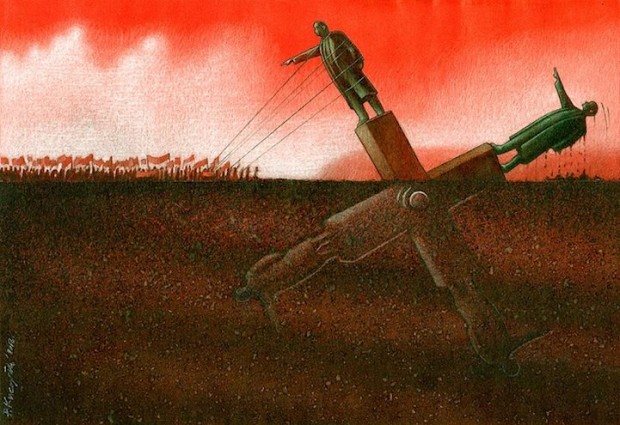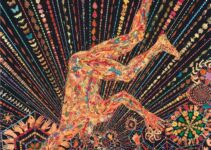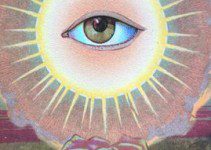The reality that people do not get what they deserve was a shocking and disturbing realization that haunted me from an early age. To cope with the heaviness of this realization I sought an answer: Why? I obsessed over possibilities, philosophies, the nature of Good and Evil. The obsessive thinking allowed me to survive the isolation of being the obsessive thinker and to penetrate to the core of human behavior. What I discovered is that there were ways of perceiving and discerning reality that were so common they had become adopted by the consensus, simply by popularity, as “the right way” or “the natural way”. It was these adopted perceptions, or beliefs, that were the major cause of why people did not get what they actually deserved, creating harm for one another, rather then being harmed by what occurred naturally.

Artist: Pawel Kuczynski
The invented and adopted caricature of the super-hero and super-villain, good and evil, is one of the most deeply rooted and influential mythos in all of humanity. How the story, picture, image of good or evil has been written and rewritten has determined the fates of countless souls throughout innumerable ages. Like spinning the wheel of fortune, being born of a black color in an age where Good is considered black brought personal luck, and being born of a black color in an age where Good is considered white brought personal misfortune, individuals have largely lived at the whim of whatever belief-system was previously adopted by their society or family of origin. Such beliefs determined the level of individual and sexual freedom as well as adopted prescriptions for behavior in a particular gender and having a proper way of relating to others. The culprit for the harm-by-consensus was society.
The core belief imposed upon humanity and regulated through the unavoidable dependency upon societal structure was the Nature-defying and God forsaking “One Size Fits All: That all things pleasant shall look like this. That all things unpleasant shall appear as this.” All through documented human history from beneath the suppressed foulness resulted from socially imposed prejudice arises the challenging and unpopular reality that not all that appears as good is always good, and what appears as evil can be deceptively not evil.
The only means to bring in true clarity, real justice, goodness and morality to society is to set down our pre-conceived beliefs about what is right or wrong. It is the job of the judge to use her or his capabilities of discernment to rule what is the best route to enact justice and well being for the good of all by discarding her or his bias coming from past personal experiences or subjective instinctual response. It requires true humility to admit that we do not and can not know what is right or wrong before the context of any given situation is fully and presently disclosed, which does not tend to always occur, and even then due to the complexity of life and nature we can only do our best to attempt what is right knowing full well we may still get it wrong and have to find a means to correct our mistakes if we do.
Because the only way to attempt real justice requires humanity to take a stand for what is truly right, to be unpopular at times, therefore be at risk, and exert true effort, it is all too common for mankind to elect for relaxing back into the presumed beliefs and assumptions upheld by society or the status-quo rather then do the work required to make society truly fair and just (though this be mankind’s and no others responsibility). This humility requires accepting the truth that life is so complex and delicate it all but seems to be held together by a single thread at times, and that we can not always control every outcome. This reality can be frightening. The truth is it requires a great courage to be humble enough to accept life for what it is and it requires great humility therefore compassion to be moral, just, right and fair.
It is easier to fall back upon the beliefs and ideas of the tradition, the society, the group, the pack, rather then be freed into the vulnerable space of experiencing life as it is in the context of every given moment, circumstance, conflict or situation. As a consequence the bias, prejudices, constant exchange of an eye for an eye, leaves humanity scattered, fragmented, impotent. What Nature creates like the rolling mountains, like the pulsing ocean waves, comes and goes, ebbs and flows. What mankind creates can outlive and overextend far beyond its natural time, remaining, unyielding, and holding humanity prisoner, but not for the reasons determined by our ancestors that won ancient popular votes to be elected as the superficial targets for our displaced blame, but rather, because the gravity of the popular vote tends to opt against the effort required for healthy adaptation. For it is not usually until society becomes very oppressive that the few courageous enough to stand for justice gains the popular vote. Human civilization tends to get very dark, very messy, very chaotic first, before humanity decides it is possible and worth the effort to attempt a step towards utopia from the present circumstance instead of pretending to remain pacified.


